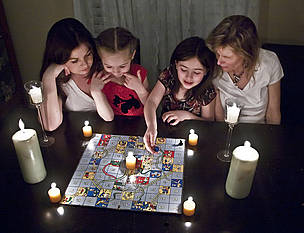What happens when children get to play together without interference from adults? Amazing things happen…like problem solving, creativity, independence, and learning limits (Read Make Your Child “a Head Taller Than Himself”). I’m not just making this up either. A recent study published in the School Community Journal explored the impact of children’s participation in recess and The Let Grow Play Club. Study participants included 460 Kindergarten through fifth graders attending an elementary school in Long Island, NY. One hundred of these students were chosen to participate in The Play Club for one hour every week while the rest participated in regular school recess (40-minutes long). Results were obtained through observation, student interviews, and teacher interviews. What were the results? Good question.
In student interviews, the students actually noted that the Play Club helped them “stay focused” during school, increased their energy level and mood, and gave them the opportunity to socialize and make more friends.
Teacher interviews suggested that students who engaged in the Play Club were better able to focus and concentrate during school. Teachers also noted an improvement in social skills like negotiation and problem-solving without adult intervention. They were better able to make adjustments to meet challenges that naturally arise during play. Overall, they exhibited greater creativity.
Observations supported the interviews, revealing the same results.
You may be thinking, “But I’m not a teacher. I’m a parent. What does this have to do with me and our home?” Well, play can have the same positive benefits in the home setting that it has in the school setting. If you want to give it a try, encourage your kids to go outside and play with their friends. If they have trouble doing so, help them come up with ideas. If they still have trouble, you might try the Let Grow Independence Kit and involve the neighbors in developing your children’s free play in the community. In the Let Grow Independence Kit, children can choose activities to do in their home. They will learn new things and have fun. In fact, a random sampling of kids and parents who have used the Let Grow Independence Kit revealed a “flourishing of idiosyncratic interests the kids would never have had the opportunity to pursue otherwise.” In other words, you might just be surprised at how much your children learn through play and what they develop an interest in during play. But don’t take my word for it. Let the children play…and watch what happens.










